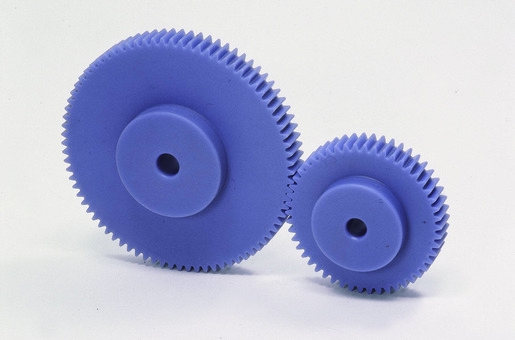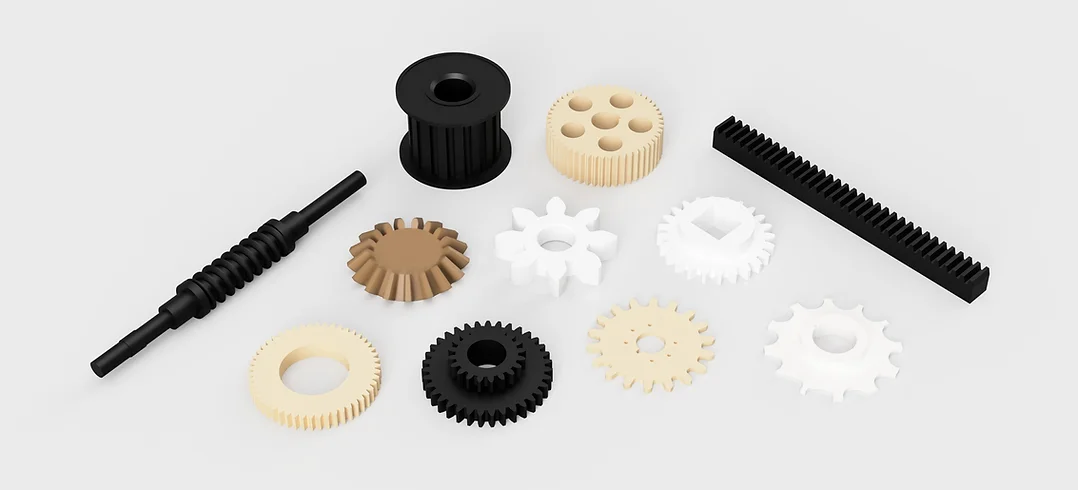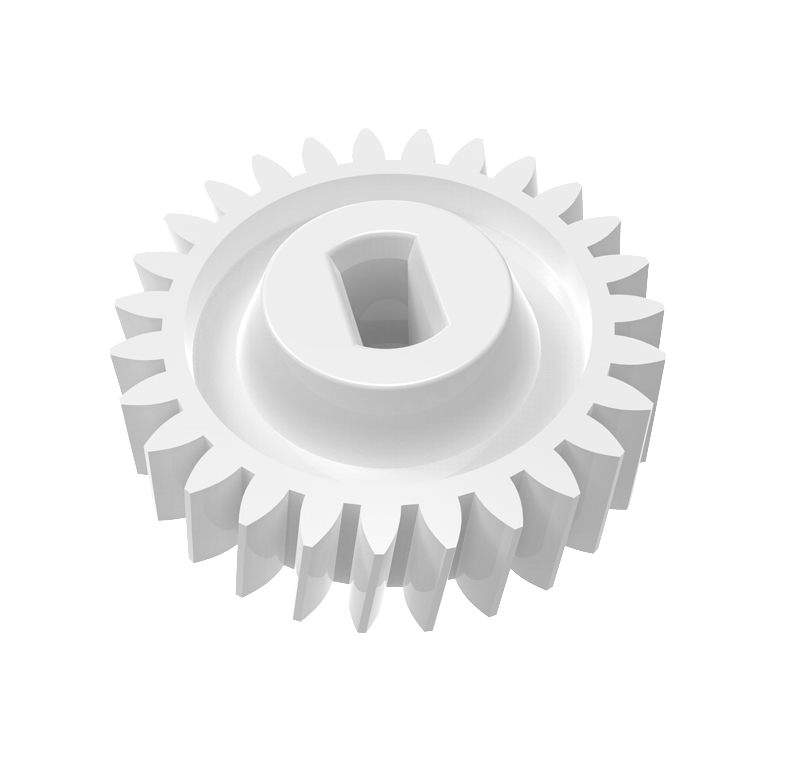Product Description
Custom Powder Coated Plastic Copper Brass Stainless Steel Spur Metal Part CNC
Turning Milling Round Helical Gear
| Material | 1) Aluminum: AL 6061-T6, 6063, 7075-T etc. |
| 2) Stainless steel: 303, 304, 316L, 17-4(SUS630) etc. | |
| 3) Steel: 4140, Q235, Q345B, 20#, 45# etc. | |
| 4) Titanium: TA1, TA2/GR2, TA4/GR5, TC4, TC18 etc. | |
| 5) Brass: C36000 (HPb62), C37700 (HPb59), C26800 (H68), C22000(H90) etc. | |
| 6) Copper, Bronze, Magnesium alloy, Delrin, POM, Acrylic, PC, etc. | |
| Finsh | Sandblasting, Anodize color, Blackenning, Zinc/Nickl Plating, Polish. |
| Power coating, Passivation PVD, Titanium Plating, Electrogalvanizing. | |
| Electroplating chromium, Electrophoresis, QPQ(Quench-Polish-Quench). | |
| Electro Polishing, Chrome Plating, Knurl, Laser etch Logo, etc. | |
| Main Equipment | CNC machining center(Milling), CNC Lathe, Grinding machine. |
| Cylindrical grinder machine, Drilling machine, Laser cutting machine, etc. | |
| Drawing format | STEP, STP, GIS, CAD, PDF, DWG, DXF etc or samples. |
| Tolerance | +/-0.01mm ~ +/-0.05mm |
| Surface roughness | Ra 0.1~3.2 |
| Inspection | Complete inspection lab with Micrometer, Optical Comparator, Caliper Vernier, CMM. |
| Depth Caliper Vernier, Universal Protractor, Clock Gauge, Internal Centigrade Gauge. | |
| Capacity | CNC turning work range: φ0.5mm-φ150mm*300mm. |
| CNC milling work range: 510mm*1571mm*500mm. |
About Runsom
Runsom, a company specializing in rapid prototyping and manufacturing, has decades of experience in
CNC machining, 3D printing, injection molding, sheet metal fabrication, and die casting. Our engineering
team with extensive knowledge and experience utilizes the latest prototyping technologies and top-notch
machining equipment to provide comprehensive services to satisfy global customers’ requirements,
timescales, and specific needs. We are able to take your concepts or designs to reality production in just
days with our advanced machining technologies, extensive manufacturing experience, and a wealth of
premium materials.
Our Mission
Runsom Precision was established to give support to companies in the industries fields who continually
need to reduce their costs and meet tight deadlines. Our purpose is to ensure customer satisfaction by
providing first-class project management control and problem-free products.
Get a Quote
Q1: What’s kinds of information you need for quote?
A1: Kindly please provide the 2D/3D drawings (PDF/DWG/DXF/IGS/STP/SLDPRT/etc) and advise material
, finish, quantity for quoting.
Q2: What is your MOQ?
A2: MOQ depends on our client’s needs, besides, we welcome trial order before mass-production.
Q3: What is the lead time?
A3: Depending on your specific project and quantity.
Q4: Available for customized design drawings?
A4: Yes, please send the technical drawings to us. It’s better if you can send both 2D and 3D drawings if
you have.
Q5: If the parts we purchase from your company are not good, what can we do?
A5: Please feel free to contact us after you got the products. Kindly send us some photos, we will
feedback to our engineers and QC departments and solve the problems ASAP.
Q6: Are you a manufacturer or trading company?
A6: We are a manufacturer, we are located in HangZhou, China.
Q7: Will my drawings be safe after sending to you?
A7: Yes, we will keep them well and not release to third party without your permission.
| Application: | Motor, Electric Cars, Motorcycle, Machinery, Marine, Toy, Agricultural Machinery, Car, Auto,Motorcycle,Aviation,Electonic,Medical,Home |
|---|---|
| Hardness: | According to The Drawing |
| Gear Position: | According to The Drawing |
| Manufacturing Method: | Machining,Milling,Turning,5axis,etc |
| Toothed Portion Shape: | Custom |
| Material: | Aluminum,Steel,Brass,Hardware,etc |
| Samples: |
US$ 5/Piece
1 Piece(Min.Order) | |
|---|
| Customization: |
Available
| Customized Request |
|---|

Can plastic gears withstand high torque and load conditions?
Plastic gears have certain limitations when it comes to withstanding high torque and load conditions. Here’s a detailed explanation of their capabilities:
Plastic gears can be designed and manufactured to handle a range of torque and load conditions, but their performance is generally inferior to that of metal gears in high-stress applications. The specific capabilities of plastic gears depend on various factors, including the chosen plastic material, gear design, tooth profile, and operating conditions.
While plastic gears may not be suitable for extremely high torque or heavy-load applications, they can still provide reliable performance in many moderate-load scenarios. Plastic gears are commonly used in applications with light to moderate loads, where their unique properties and advantages outweigh their limitations.
Some plastic materials, such as acetal (POM) and polyamide (nylon), offer good strength and wear resistance, allowing them to handle moderate torque and load conditions. These materials can be reinforced with additives or fillers to enhance their mechanical properties and increase their load-bearing capacity.
It’s important to note that when designing with plastic gears, engineers must carefully consider factors such as gear size, tooth geometry, material selection, and operating conditions. Reinforcement techniques, such as using metal inserts or reinforcing fibers, may be employed to improve the strength and load-bearing capabilities of plastic gears in certain applications.
In high torque or heavy-load applications, metal gears, particularly those made from steel or other high-strength alloys, are generally preferred due to their superior strength and durability. Metal gears offer higher load capacities, better resistance to deformation, and increased resistance to wear under extreme conditions.
Ultimately, the suitability of plastic gears for high torque and load conditions depends on the specific requirements of the application and the trade-off between the benefits of plastic gears, such as weight reduction and noise reduction, and the higher load-bearing capabilities of metal gears.
It’s recommended to consult with gear manufacturers or mechanical engineers to determine the most appropriate gear material and design for a particular application, especially when high torque and load conditions are expected.

What is the impact of temperature variations on plastic gears?
Temperature variations can have a significant impact on plastic gears. Here’s a detailed explanation of their effects:
1. Thermal Expansion: Plastic gears can experience thermal expansion or contraction with changes in temperature. Different types of plastics have varying coefficients of thermal expansion, meaning they expand or contract at different rates. This can result in dimensional changes, which may affect the gear’s meshing, clearance, and overall performance. It’s important to consider the thermal expansion characteristics of the specific plastic material used in the gear design.
2. Material Softening or Hardening: Plastic materials can exhibit changes in mechanical properties with temperature variations. In general, as temperature increases, plastic materials tend to soften and become more flexible, while at lower temperatures, they can become stiffer and more brittle. These changes can impact the gear’s load-bearing capacity, wear resistance, and overall durability. It’s crucial to select plastic materials that can maintain their mechanical integrity within the expected temperature range of the application.
3. Dimensional Stability: Plastic gears may experience dimensional changes or warping due to temperature fluctuations. Higher temperatures can cause plastic materials to deform, leading to misalignment, increased backlash, or reduced gear accuracy. Conversely, lower temperatures can cause contraction, resulting in tight clearances, increased friction, or gear binding. Proper design considerations, including material selection and gear geometry, can help mitigate the impact of temperature-induced dimensional changes.
4. Lubrication and Wear: Temperature variations can affect the lubrication properties of plastic gears. Higher temperatures can cause lubricants to degrade or become less effective, leading to increased friction, wear, and potential gear failure. Similarly, low temperatures can cause lubricants to thicken or solidify, hindering proper lubrication and increasing wear. Selecting lubricants suitable for the anticipated temperature range and periodic maintenance can help ensure proper lubrication and minimize wear on plastic gears.
5. Cold Flow and Creep: Some plastic materials, especially those with lower glass transition temperatures, may exhibit cold flow or creep at elevated temperatures. Cold flow refers to the gradual deformation or flow of plastic material under constant stress, while creep refers to the time-dependent deformation under a constant load. These phenomena can cause changes in gear geometry, tooth profile, or tooth engagement over time, potentially affecting gear performance and functionality. Understanding the material’s creep and cold flow characteristics is important when selecting plastic gears for applications exposed to temperature variations.
6. Impact on Lubricants and Seals: Temperature variations can also impact the performance of lubricants and seals used in gear systems. Extreme temperatures can cause lubricants to break down, lose viscosity, or leak from the gear assembly. Seals and gaskets may also be affected, leading to compromised gear housing integrity or increased friction. It’s crucial to consider temperature compatibility and select appropriate lubricants and seals that can withstand the anticipated temperature range.
In summary, temperature variations can significantly impact plastic gears by causing thermal expansion, material softening or hardening, dimensional changes, lubrication issues, cold flow or creep, and effects on lubricants and seals. Proper material selection, design considerations, and understanding the anticipated temperature range are essential to ensure the reliable and optimal performance of plastic gears in various applications.

Are there different types of plastic materials used for making gears?
Yes, there are different types of plastic materials used for making gears. Here’s a detailed explanation of some commonly used plastic materials in gear manufacturing:
- Acetal (Polyoxymethylene – POM): Acetal is a popular choice for gear applications due to its excellent strength, dimensional stability, low friction, and wear resistance. It has good machinability and can be easily molded into gears with precise tooth profiles. Acetal gears offer low noise operation and have good resistance to moisture and chemicals. They are commonly used in automotive, consumer electronics, and industrial applications.
- Polyamide (Nylon): Polyamide or nylon is another widely used plastic material for gears. It offers good mechanical properties, including high strength, toughness, and impact resistance. Nylon gears have low friction characteristics, good wear resistance, and self-lubricating properties. They are commonly used in applications such as automotive components, power tools, and industrial machinery.
- Polyethylene (PE): Polyethylene is a versatile plastic material that can be used for gear applications. It offers good chemical resistance, low friction, and excellent electrical insulation properties. While polyethylene gears may have lower strength compared to other plastic materials, they are suitable for low-load and low-speed applications, such as in light-duty machinery, toys, and household appliances.
- Polypropylene (PP): Polypropylene is a lightweight and cost-effective plastic material that finds applications in gear manufacturing. It offers good chemical resistance, low friction, and low moisture absorption. Polypropylene gears are commonly used in various industries, including automotive, consumer electronics, and household appliances.
- Polycarbonate (PC): Polycarbonate is a durable and impact-resistant plastic material used for gears that require high strength and toughness. It offers excellent dimensional stability, transparency, and good resistance to heat and chemicals. Polycarbonate gears are commonly used in applications such as automotive components, electrical equipment, and machinery.
- Polyphenylene Sulfide (PPS): Polyphenylene sulfide is a high-performance plastic material known for its excellent mechanical properties, including high strength, stiffness, and heat resistance. PPS gears offer low friction, good wear resistance, and dimensional stability. They are commonly used in demanding applications such as automotive transmissions, industrial machinery, and aerospace equipment.
These are just a few examples of the plastic materials used for making gears. The choice of plastic material depends on the specific requirements of the gear application, including load capacity, operating conditions, temperature range, chemical exposure, and cost considerations. It’s important to select a plastic material that offers the necessary combination of mechanical properties and performance characteristics for optimal gear performance.


editor by CX 2023-09-22